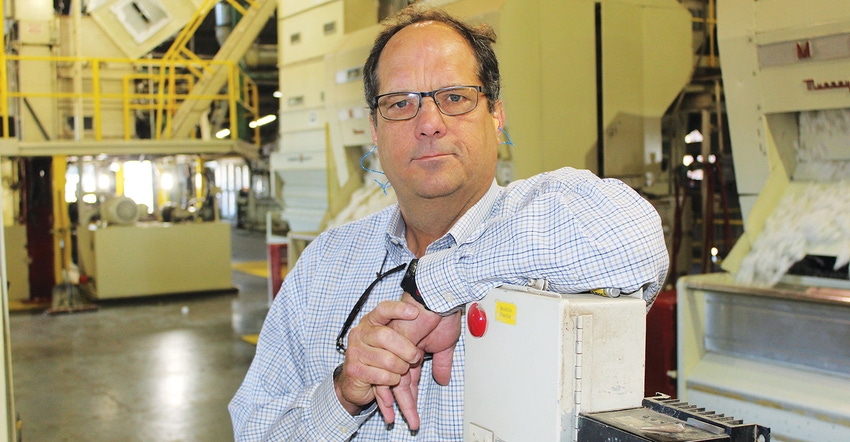
After an active year as president of the Southern Cotton Ginners Association, David Cochran Jr. looked back and wondered where the time has gone, but is gratified at the progress made by the organization.
Between frequent briefings with Tim Price, SCGA executive director, and producing and ginning a cotton crop himself, Cochran often laid his head down late many nights.
The amount of short and long-range planning needed to keep an organization like SCGA moving forward is both time-consuming and logistically challenging. “Our midsummer meeting is always an interesting event because we bring in speakers who share insight into issues impacting our association and the ginning industry,” says Cochran. “Last year we brought in Dr. Jane Dever, professor and project leader, who oversees the Cotton Improvement Program at Texas A&M, who shared her insight into cottonseed, seed size, seed coat fragments, and how they are all related to breeding efforts.”
Ginners have been voicing their concerns about small seed size to breeders, and the industry in general, for some time. “This issue has been an expanding point of contention within the ginning community the last five years to seven years,” says Cochran. “It was once thought seed size had to be sacrificed to gain higher lint yield/turnout. We’re finding that’s just not the case from a scientific perspective.”
LOST REVENUE, PROFITABILITY
Seed turnout has gone down incrementally, and ginners are paying the price in lost revenue and subsequent losses in profitability. Dever also provided background into the recently-announced development of ultra-low gossypol cottonseed.
Many of the activities, programs, and services in which the SCGA remains involved are a continuum of efforts that do not start or begin with a particular time frame. “Our association works with other cotton industry associations as well as industry leaders, to maintain support for the many legislative initiatives like the Cottonseed Assistance Program,” says Cochran. “The official announcement about this program came from Secretary of Agriculture Sonny Perdue, at the 2018 Mid-South Farm and Gin Show — the SCGA’s largest annual event.”
Cochran, Price, and the entire board of the SCGA remain committed in their efforts to increase support for continued funding for the USDA/ARS Cotton Ginning and Research Laboratories at Stoneville, Miss., Lubbock, Texas, and Las Cruces, New Mexico. “We are very fortunate in the Mid-South to have the Stoneville facility in our region,” Cochran says. “Losing either one of these facilities would be a huge loss to our industry and would stall future development in ginning technologies.”
The SCGA remains in touch with legislators, key industry and coalition efforts related to each farm bill and provides relevant updates to their membership at their annual, summer, and district meetings. “William Lindamood, SCGA safety director, stays abreast of all regulatory changes involving state agencies and federal changes involving OSHA, the Departments of Labor and Transportation, as well as the Food and Drug Administration and the Environmental Protection Agency,” says Cochran. “All of this is in addition to his efforts to maintain a proactive safety program.”
FIBER CONTAMINATION ISSUES
Contamination in baled fiber continues to threaten the global reputation of U.S. cotton. Through presentations and programs tailored to emphasize the importance of remaining diligent with proactive anti-contamination best practices, the SCGA dedicates a section of each year’s Gin School curriculum to this topic.
“The National Cotton Council is grateful for the SCGA efforts to eliminate contamination,” says Harrison Ashley, vice president of ginner services for the organization. “Our education materials are created in a format that is shareable with SCGA members. Those educational efforts have been expanded with online materials and a recently-produced video for gins to use as they educate themselves, producers, handlers, and transporters of round cotton modules.”
About the Author(s)
You May Also Like




